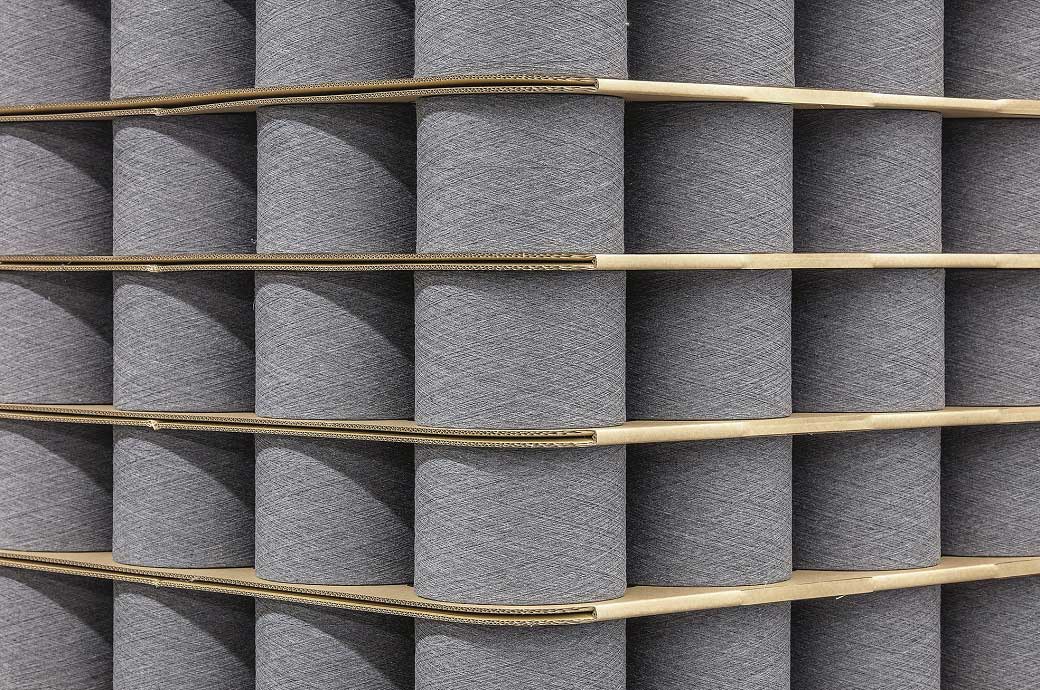
Founded in 2017, Valerius 360 produces yarn by recycling waste from its own spinning and knitting processes—which keeps more material in the economic cycle for longer, cutting down waste and making an important contribution to sustainability. Recently, its experts launched a new project with the aim of increasing the quality of yarn made from recycled waste fibre. But processing recycled fibres is tricky in many ways. Reopening textiles down to the fibre, for example, leads to a reduction in the fibre quality, according to a press release by Trutzschler.
Trutzschler has innovative technologies and significant experience that support spinners with applications that involve recycled waste fibres. The company’s experts have a deep understanding of the decisive role that fibre and spinning preparation stages play in the quality of the final yarn.
The team from Valerius 360 wanted to find ways of improving the processes for yarns made from 50 per cent recycled and 50 per cent virgin cotton. In particular, it was seeking ways to reduce thick and thin spots, which disturb the appearance of the textile surface.
The team conducted special trials at the Trutzschler Technical Centre in Monchengladbach that showed that using a direct spinning process for this application delivers much better results than a process with a draw frame passage for rotor yarns. In direct spinning, the sliver from the card is directly drawn in the draw frame which is integrated in the can stock. This involves one less process step than using an auto-leveller draw frame, while also saving space and giving staff more time for other operations.
Direct spinning showed a clear capacity to reduce the number of faults in the yarn. As a result, the yarn breaks were 30 per cent lower and the total IPI 38 per cent lower. The direct spinning process also has a positive effect on energy consumption. Compared to the process with a draw frame passage, for a medium plant size, a savings potential of 5 per cent is achieved with direct spinning. At an energy price of €0.2/kW, the savings amount to over €5,000 per year.
The team from Valerius 360 also received in-house training from the Trutzschler Customer Service department. Together, they analysed and significantly improved the process at the Valerius 360 production site. This helped to bring yarns made from recycled raw materials up to the required level of the 50 per cent Usterstatistics. This is the reference level for yarns made from virgin raw materials. Accordingly, 50 per cent of all yarn producers with raw cotton for rotor yarns and comparable yarn counts produce a poorer quality, added the release.
The case study shows how customers can improve the processing of recycled materials by using preparation systems from Trutzschler. This includes plant concepts for fibre preparation, such as T-Blend or the TC 19iR. It also includes concepts for spinning preparation like direct spinning with the unique IDF from Trutzschler. These systems help customers to maximise the full potential of the material they are processing—because quality is decided at the preparation stage.
“We believe that right now the fashion industry is in a position to actively play a pioneering role in restoring the environment and thus restoring humanity, and we want to make our contribution to that,” said Patricia Ferreira, CEO of Valerius Hub.
“We are very grateful for the great support that Trutzschler has given and continues to give us at all levels—from machine configuration through to product development, assembly, and customer service,” said Miklos Pal Nagy, manager at Valerius 360.
Fibre2Fashion News Desk (NB)